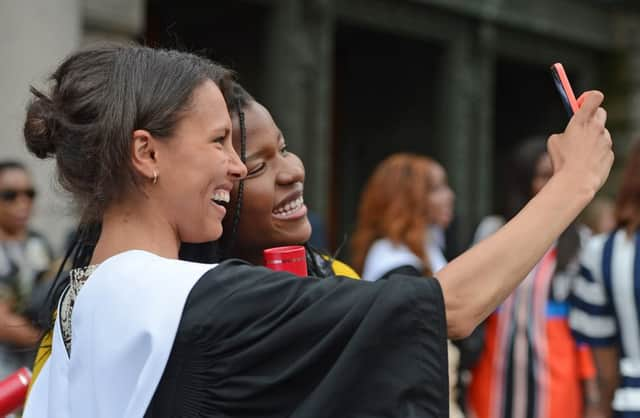Report: Graduates and the young want to stay in EU


An analysis of polling data published today by NatCen Social Research uncovers what it describes as “significant social differences” between those voters who want to stay in the EU and those who want out.
The report, compiled by Britain’s largest independent social research agency, uses data from NatCen’s British Social Attitudes survey (BSA), the British Election Study (BES) and a series of recent polls.
Advertisement
Hide AdAdvertisement
Hide AdIts release coincides with the launch of a new website “What UK Thinks: Europe” that will provide a comprehensive collection of polling data and commentary on attitudes towards Europe ahead of the forthcoming EU referendum.
Examining the relationship between attitudes towards Europe and educational achievement, the report concludes that support for leaving the EU is highest amongst those without any qualifications and lowest amongst graduates.
In the BSA 55 per cent of those with no formal qualifications say they want to leave the EU, while the equivalent figure in the BES is 52 per cent. Meanwhile, just 15 per cent of graduates told BSA that they want to leave, while no more than 26 per cent did so in the BES.
Age also appears to be a critical factor. Younger voters are more likely than older voters to back remaining in the EU. In the BSA survey more than two thirds (69 per cent) of those aged under 35 say they would prefer to remain in the EU, while just a quarter (25 per cent) wish to leave. In contrast, just 45 per cent of over-55s wish to remain while 46 per cent would prefer to leave.
Unlike the Scottish independence debate, there does not seem to be a divergence of opinion when it comes to gender. In the run-up to last year’s Scottish referendum, polls consistently showed that men were more likely to back Yes than women.
When it comes to the EU referendum, polls suggest there is little in the way of a “gender gap”, although women are more likely than men to say they do not know how they will vote. On average 17 per cent of women say they “don’t know” compared with nine per cent of men.
The analysis confirmed Conservative and Labour supporters are divided on the issue. Across four recent opinion polls (ICM, Survation, YouGov, ComRes) 42 per cent of Conservatives stated they would like to leave, while exactly the same proportion said that they would like to remain. And although a majority of Labour supporters (58 per cent) are inclined to vote to remain, a substantial minority (27 per cent) would prefer to leave.
Unsurprisingly, UKIP voters are overwhelmingly in favour of leaving the EU with as many as 84 per cent saying they will vote to leave.
Advertisement
Hide AdAdvertisement
Hide AdProfessor John Curtice, Senior Research Fellow at NatCen Social Research, said: “The result will turn on the ability and willingness of both David Cameron and Jeremy Corbyn to persuade their currently divided supporters to back one side or the other.
“Much may rest in particular on whether Mr Cameron achieves his apparent ambition to persuade Eurosceptically inclined Conservative voters that he has brought back a deal that is worth backing after all.”